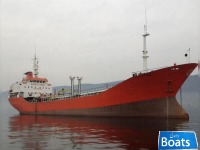Oil tanker ships

Oil tanker ships: the ultimate guide
Introduction
Oil tanker ships are the backbone of the global oil industry, transporting crude oil and refined products around the world. In this ultimate guide, we will take a look at what these ships are, how they work, and the benefits they offer.
What are oil tanker ships
History of oil tanker ships
The first recorded use of an oil tanker ship was in 1851, when a small vessel called the Mosel transported crude oil from Romania to England. The Mosel was just over 50 feet long and could carry about 10 tons of oil. Today, oil tanker ships are much larger and can carry millions of barrels of oil at a time.
How do oil tanker ships work
Oil tanker ships are specially designed to transport large amounts of crude oil or refined products such as gasoline, diesel, and jet fuel. These ships have large storage tanks that hold the oil, and they also have special pumps that help move the oil through the ship to the destination.

Types of oil tanker ships
Crude oil tanker ships
Crude oil tanker ships are used to transport crude oil from one location to another. These types of ships are typically very large, with a capacity of up to 2 million barrels of oil. They are usually double-hulled for safety reasons, and have a variety of different compartments and tanks that can be used for storage. Crude oil tanker ships typically have a crew of about 20-30 people.
Product tanker ships
Product tanker ships are used to transport refined products such as gasoline, diesel, and jet fuel. These types of ships are typically smaller than crude oil tanker ships, with a capacity of up to 1 million barrels of product. They usually have a single hull, and often have multiple compartments and tanks for storing different products. Product tanker ships typically have a crew of about 10-20 people.
Chemical tanker ships
Chemical tanker ships are used to transport chemicals and other hazardous materials. These types of ship are typically smaller than both crude oil tanker ships and product tanker ships, with a capacity of up to 500,000 barrels of chemical product. They usually have a single hull, and often have multiple compartments and tanks for storing different chemicals. Chemical tanker ships typically have a crew of about 5-10 people.
The benefits of oil tanker ships
Oil tanker ships are efficient
Oil tanker ships are some of the most efficient vessels in the world when it comes to transporting oil. They are able to carry large amounts of oil without wasting any of the valuable resource.
Oil tanker ships are safe
Oil tanker ships have a very good safety record. They are designed to be stable and secure, and they have a variety of safety features that help to protect both the crew and the cargo.
Oil tanker ships are cost-effective
Conclusion
Oil tanker ships are essential for transporting oil around the world. They are efficient, safe, and cost-effective. This makes them a vital part of the global economy.







